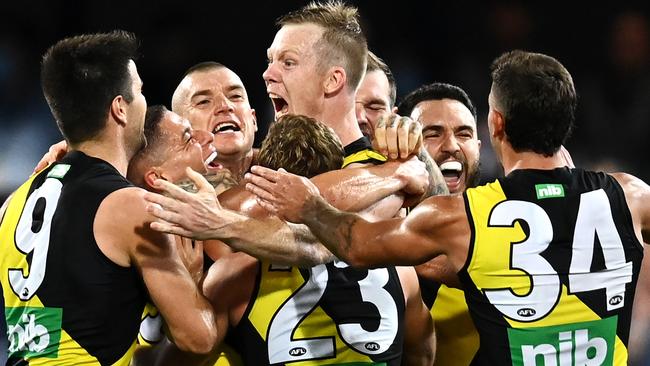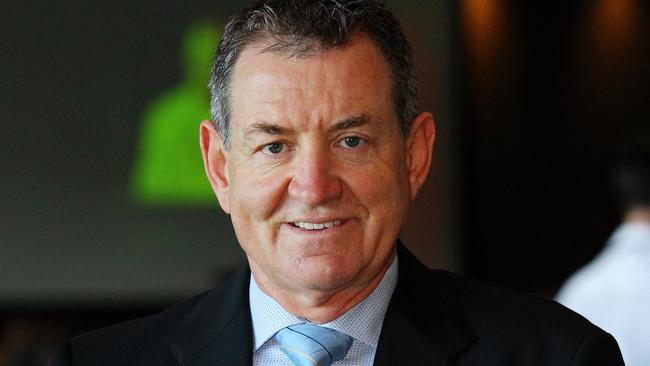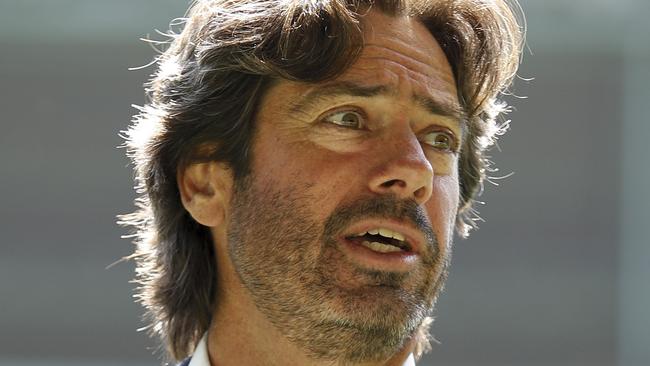Top medico Dr Peter Larkins says AFL players shouldn’t be given priority access to a COVID-19 vaccine
Round 1 of the AFL season is less than two months away but will the game’s stars get a vaccine before the first bounce?

AFL News
Don't miss out on the headlines from AFL News. Followed categories will be added to My News.
AFL players should not expect to jump the queue for an early COVID-19 vaccine, according to sports medico expert Dr Peter Larkins.
Debate has raged whether elite sports people should have access to a priority dose with the Australian cricket team and the NRL both putting their hands up for an early jab
The cricketers have asked to be vaccinated before they embark on a tour to South Africa from

February 24 in the belief it was “high likely” members of the party would otherwise contract coronavirus during the trip.
But the AFL has not sought special approval and has said it would await instructions from the Federal Government.
With the AFL season almost seven weeks away, Larkins said it was extremely unlikely players would receive their shots before Round 1 in mid-March.
He said AFL players did not need preferential treatment.

“Having the two doses over three weeks you’ve got a 90 per cent chance you’ll be protected (against COVID-19) so it makes very good sense for people to get it,” Larkins said.
“But in terms of something that is going to be rolled out (for the players) prior to Round 1 — I just can’t see it happening. There are too many people ahead of them on the list.
“There is still COVID-19 in the community so the people who are working in the highest risk environment are going to get their vaccinations first.”
The vaccine rollout is scheduled to start mid next month after the Pfizer vaccine was on Monday approved for use in Australia.

Currently, frontline health care workers and aged care residents will be the first in line for a jab as part of the first wave, ahead of other elderly populations, emergency service workers, and meat processing staff.
It means the AFL cohort may have to wait several more months when the balance of the Australian population aged between 18-50 receive their doses, unless they are officially categorised as “critical” or “high risk” workers.
More information on the timeline is expected next month.
Larkins said if anything AFL players may be considered lower risk because of the amount of education and training they have received around hygiene protocols in their hubs last year.
“After the hub experience they should be incredibly well-trained about all the hygiene issues, so they should be a pretty well-protected group,” Larkins said.
“They wouldn’t be considered higher risk, and similarly with the NRL, I think they would be in the community (vaccination) list or even a lower priority.
“I don’t mean that to be anti-AFL, but there are just people who are more exposed and should get the vaccine ahead of time because I don’t trust them as much as I trust the AFL player to be hygienic.”

Clubs would also need thousands of vaccination for support staff, coaches, administration workers and executives at the same time if they were also in regular contact with the players.
The biggest area of concern would be team’s domestic travel requirements, but players would be expected to fly separately from the general public.
The AFL has already revamped the pre-season competition to reduce the amount of interstate travel required before the regular season kicks off on March 18.
Victorian sports minister Martin Pakula said he had not discussed an early vaccination plan with the AFL.
“They certainly haven’t requested it of me,” Pakula said.
“If they were going to have that conversation with anyone I imagine it would be with the Commonwealth.”




